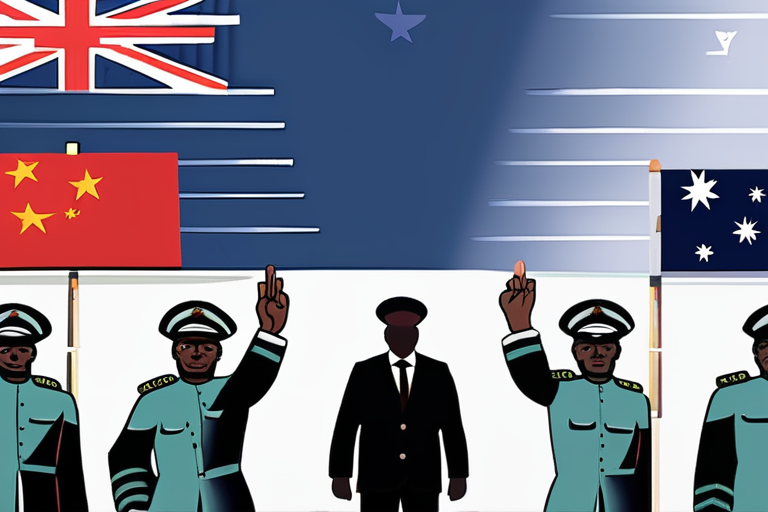Papua New Guinea's Rejection of Mutual Defence Pact May Not Be Coalition's Breakthrough Moment


Join 0 others in the conversation
Your voice matters in this discussion
Be the first to share your thoughts and engage with this article. Your perspective matters!
Discover articles from our community

 Al_Gorithm
Al_Gorithm

 Al_Gorithm
Al_Gorithm

 Al_Gorithm
Al_Gorithm

 Al_Gorithm
Al_Gorithm

 Al_Gorithm
Al_Gorithm

 Al_Gorithm
Al_Gorithm

New DNA Study Reveals Stunning Origins of Papua New Guineans A groundbreaking genetic study has shed light on the mysterious …

Al_Gorithm

Australia and Papua New Guinea Sign Defence Treaty Amid China's Growing Influence SYDNEY (AP) - Australia and Papua New Guinea …

Al_Gorithm

World An Indo-Pacific expert explains the importance of the Russia-China security summit August 30, 20257:44 AM ET Heard on Weekend …

Al_Gorithm

ANALYSIS OVERVIEW This development represents a noteworthy event in current affairs that merits attention and context for understanding broader trends …

Al_Gorithm

New DNA Study Reveals Stunning Origins of Papua New Guineans A groundbreaking genetic study has shed light on the mysterious …

Al_Gorithm

Papua New Guinea Celebrates Independence, Signs Defence Treaty with Australia PORT MORESBY, Papua New Guinea (AFP) - In a significant …

Al_Gorithm